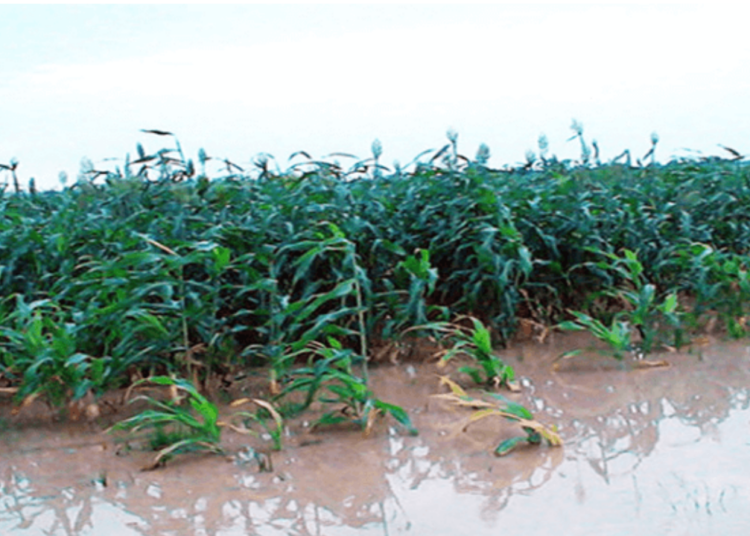An estimated N700 billion in economic value has been lost to damages caused by the 2022 floods in the Nigeria’s agricultural-related sector.
This include the loss of 8.4 million tonnes of fourteen crop varieties output, valued at N384.4 billion with the fish sector accounted for the loss of N100.2 billion, while over N93.04 billion was also lost in the livestock sector.
In addition, the overall lost to the impact of the floods on agricultural structures and farmlands amounted to over 120 billion naira with 863,648 hectares of farmlands affected.
An assessment conducted by the National Agricultural Extension and Research Liaison Services (NAERLS), Ahmadu Bello University, Zaria on the 2022 flood in Nigeria and its implication on agriculture has revealed.
The survey show that Kebbi, Delta, and Cross River States were the most severely affected by the flood while Nasarawa, FCT and Oyo were the least affected among the 30 states selected for the study.
In their assessment, team of three multi-disciplinary scientists, including one experienced staff from each of the respective states’ Agricultural Development Programme (ADP) and State Emergency Management Agency (SEMA) were deployed using field visits, focus group discussions, key informant interviews, and individual farmer interviews involving 1,180 respondents nationwide.
According to their findings, 1,798 communities were affected by the floods in 263 local government areas and the major causes in South-East and North-Central were releases of excess water from Lagdo Dam, Cameroon, and excessive rainfall in South-west, while the occurrence of flood in North-West and North-East was due to heavy rainfall and blockage of existing drainages.
Presenting the assessment report to the minister of agriculture and rural development, Dr Mohammad Mahmood Abubakar in Abuja, NAERLS executive director, Prof Emmanuel Ikani said even though early warning about the 2022 floods was shared with farmers in most of the states but their findings show that Akwa Ibom, Cross River, and Taraba reported that early warning information about the flood was not shared among farmers in their states.
He said, “The assessment showed that the 2022 flooding damaged crops, washed farmlands and destroyed livestock and fish resources, the enormous flood is a potential threat to food security, an estimated sum of N700 billion was lost due to the flood”
In his recommendations, Ikani said, dry season production of staple crops should be promoted across the country to bridge the imminent food supply gap.
He said, “The Federal Ministry of Water Resources should urgently consider building at least one dam on the Benue River for flow regulation… River Basin Development Authorities should be mobilised and facilitated to undertake river training and desilting of major rivers within their catchment.
Promotion of climate-smart agricultural practices through upgrading Flood Early Warning Systems (FEWS), sensitisation and education of farmers. NiMET, NIHSA should be supported for improved data collection and analysis while NAERLS, FDAE and FDA be funded for sensitisation and dissemination of flood early warning systems”.
“National agricultural research institutes should be charged and supported to breed and promote climateresilient (drought-tolerant, flood-resistant, and early maturing) crop varieties and improvement of run-off management through the provision of erosion control measures in towns and villages and construction of underground water harvesting reservoirs within the catchment of rivers and large streams”, he added.





